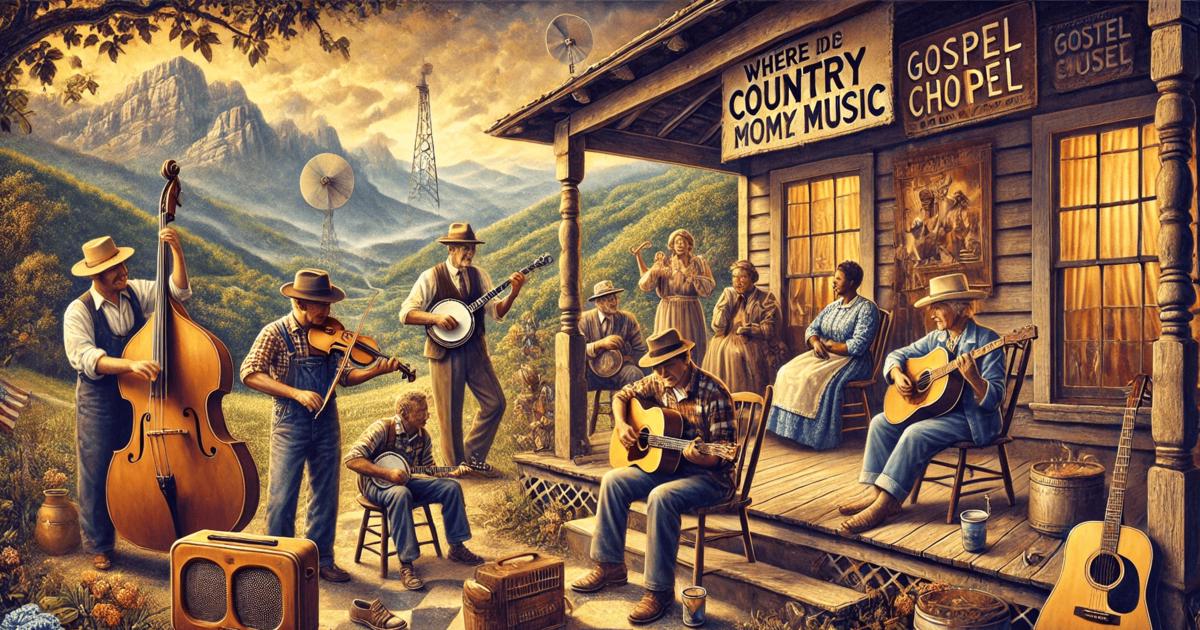Who Invented Country Music? The Truth Behind the Genre
Understanding Country Music's Origins
Country music wasn’t created by a single artist or at a specific moment in time. Instead, it developed gradually in the Southern United States during the late 19th and early 20th centuries. This organic growth came from the merging of different cultural traditions and musical practices.
📌 Viberate Analytics: Professional music analytics suite at an unbeatable price: $19.90/mo. Charts, talent discovery tools, plus Spotify, TikTok, and other channel-specific analytics of every artist out there.
At its core, country music is a blend of European and African-American musical influences. British, Irish, and Scottish immigrants brought ballads and folk storytelling traditions, which became foundational to the genre’s lyrical style. These were layered with the rhythms and tonalities of African-American musical forms such as blues, gospel, and spirituals. This cultural mix resulted in a new genre that reflected rural life, personal hardship, and community storytelling.
The instrumentation was central to shaping the genre's sonic identity. Fiddles and banjos were widely used in early country recordings, with acoustic guitars, mandolins, and eventually steel guitars adding new textures. These instruments became staples of country music as it moved into recording studios and radio broadcasts.
The First Recordings and Breakout Hits
The early 1920s marked a turning point with the first commercial recordings of what would later be classified as country music. In 1923, Fiddlin' John Carson recorded "Little Old Log Cabin in the Lane," one of the genre's first documented commercial tracks. A year later, Vernon Dalhart released "Wreck of the Old 97," which became the first country song to achieve national success.
These releases demonstrated the commercial potential of country music and helped initiate the broader industry infrastructure needed to support the genre. Labels began scouting for rural talent, and music publishers started to take an interest in Appalachian, Southern, and Western music catalogs.
Defining Moments: The Bristol Sessions
A major milestone came in 1927 with the Bristol Sessions, often referred to as the "big bang" of country music. These sessions introduced two acts that would define the genre’s direction: Jimmie Rodgers and the Carter Family.
Jimmie Rodgers is widely recognized as the "Father of Country Music" for his ability to merge blues, traditional ballads, and yodeling into a unique and influential style. His recordings laid a template for solo singer-songwriters and remain essential to understanding the genre's evolution.
The Carter Family focused on preserving traditional American folk songs and harmonies. Their work was critical not only for popularizing the genre but also for establishing a catalog of songs that would become staples in country repertoires for generations.
Both acts contributed to a musical framework that influenced songwriting, arrangement, and vocal delivery styles still heard today.
Building the Country Music Industry
As the genre matured, its professional infrastructure also evolved. A key figure in this transition was Connie B. Gay. In the 1940s, he helped shift the public perception of the genre by promoting the term "country music" instead of the previously used "hillbilly music."
Gay’s work led to the establishment of major institutions including the Country Music Association and the Country Music Hall of Fame. These bodies helped legitimize the genre within the broader music industry and provided recognition and support for artists, writers, and publishers.
At the same time, radio played a crucial role in spreading the genre. The Grand Ole Opry, launched in 1925 out of Nashville, quickly became the premier radio platform for country musicians. Its influence extended beyond programming: it helped establish Nashville as the epicenter of country music, a title it continues to hold today.
Cultural Contributions Often Overlooked
Country music has long been perceived as a genre rooted in white Southern culture, but this view omits significant African-American contributions. Artists, musicians, and song collectors like Lesley Riddle played essential roles in shaping the genre’s early sound. Riddle collaborated closely with the Carter Family, helping to transmit songs and techniques that became central to their recordings.
Despite these deep-rooted influences, Black contributions to country music were often minimized or erased in official histories and marketing narratives. Today, there is growing awareness and acknowledgment of these influences. This shift is especially relevant for industry professionals involved in branding, catalog management, and licensing, as recognizing a fuller cultural context can enrich storytelling and authenticity.
Context for Music Industry Professionals
So, who invented country music? The honest answer is that no one person did. The genre emerged from a mixture of traditions, communities, and circumstances. Still, certain individuals and events helped define its structure and visibility.
- Fiddlin' John Carson and Vernon Dalhart marked the start of commercial viability.
- Jimmie Rodgers and the Carter Family laid the genre’s stylistic and commercial foundations.
- Figures like Connie B. Gay formalized the industry and helped change its public image.
- Institutions such as the Grand Ole Opry solidified the genre's reach and prestige.
Understanding these roots is essential for music professionals working in:
- Rights management: to accurately track song origins and claim rights.
- Catalog curation: to properly contextualize historical recordings.
- Marketing: to shape artist narratives with historical credibility.
- Artist development: to guide musicians looking to align with or update traditional country aesthetics.
Country music’s origin story is not just historical trivia. It provides a lens for interpreting the genre’s continued relevance and complexity in a modern industry landscape. As the genre evolves, acknowledging all its roots helps keep the narrative truthful and expansive.
For professionals shaping the future of music, knowing who invented country music means understanding the interconnected cultural and commercial milestones that still influence today’s sound, storytelling, and identity.
Source of music data: Viberate.com

Premium music analytics, unbeatable price: $19.90/month
11M+ artists, 100M+ songs, 19M+ playlists, 6K+ festivals and 100K+ labels on one platform, built for industry professionals.




